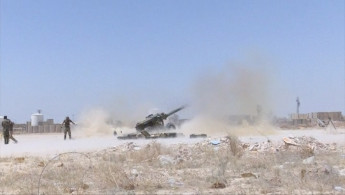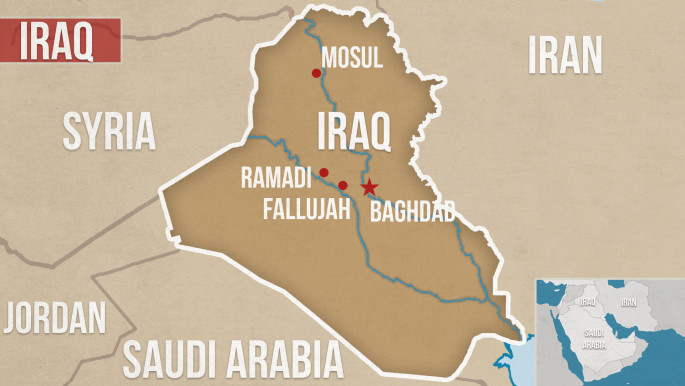Operation Fallujah: 240 airstrikes in nine days
As the fight for Fallujah intensifies, the Iraqi military has revealed it has launched at least 240 air raids since the beginning of its military operations, as a leading aid group raised alarm over the unfolding "human catastrophe" in the city.
Iraqi forces began the operation on May 22 to retake the Islamic State group bastion, which lies only 50km (30 miles) west of Baghdad.
Iraqi air force chief Hamed al-Maliki said Iraq's air force "gave extensive support for ground troops in operation Fallujah".
"There was a total of 560 dispatches, including 240 airstrikes and 320 general operations around the city."
The statement comes after Iraqi forces repelled a four-hour attack by the Islamic State group in the city's southern edges on Tuesday, a day after first moving into the suburbs of the militant-held city with the help of US-led coalition airstrikes.
The attack started at dawn in Fallujah's Nuaimiya district, where Iraqi troops captured almost 85 percent of the area the previous day.
IS militants used tunnels, deployed snipers and sent six explosive-laden cars to hit the troops but the vehicles were destroyed before reaching their targets, two officers told AP.
Iraqi forces suffered severe casualties, but the officers didn't give details.
Nuaimiya is a sprawling mainly agricultural area in Fallujah's south, and Monday's push into it was the first attempt by Iraqi forces to enter the city after focusing on dislodging the militants from surrounding areas to tighten the siege.
Fallujah has been under Islamic State group control for more than two years and is the last major city in western Iraq still under control of the group.
The militants still control patches of territory in the country's north and east as well as the country's second-largest city, Mosul.
The group is expected to increase attacks in major Iraqi cities in an attempt to distract the security forces' attention away from the front lines. On Monday, IS claimed responsibility for a wave of bombings in and around the capital, Baghdad, that killed at least 24 people and wounded dozens.
'Human catastrophe' unfolding in Fallujah
The siege of Fallujah and the 50,000 civilians believed trapped inside is a catastrophe in the making, the Norwegian Refugee Council warned on Tuesday.
Secretary-General Jan Egeland renewed a call for safe corridors to be opened to prevent massive civilian loss of life.
"A human catastrophe is unfolding in Fallujah. Families are caught in the crossfire with no safe way out," he said in a statement.
"For nine days we have heard of only one single family managing to escape from inside the town. Warring parties must guarantee civilians safe exit now, before it's too late and more lives are lost," he said.
| Read more: Fallujah and the deepening displacement crisis in Iraq |
NRC runs camps in Amriyat al-Fallujah, a government-controlled town south of Fallujah, where fleeing civilians are given shelter and assistance.
The aid effort across Iraq and Syria is hugely underfunded but Egeland appealed for emergency funding to meet the immediate needs of the most vulnerable people from Fallujah.
"There isn't enough safe drinking water and the situation will quickly worsen with summer around the corner, and temperatures likely to hit over 50 degrees Celsius [122F]," he said.
"The international community must urgently provide funding so that we can help the most vulnerable people."
Agencies contributed to this report








